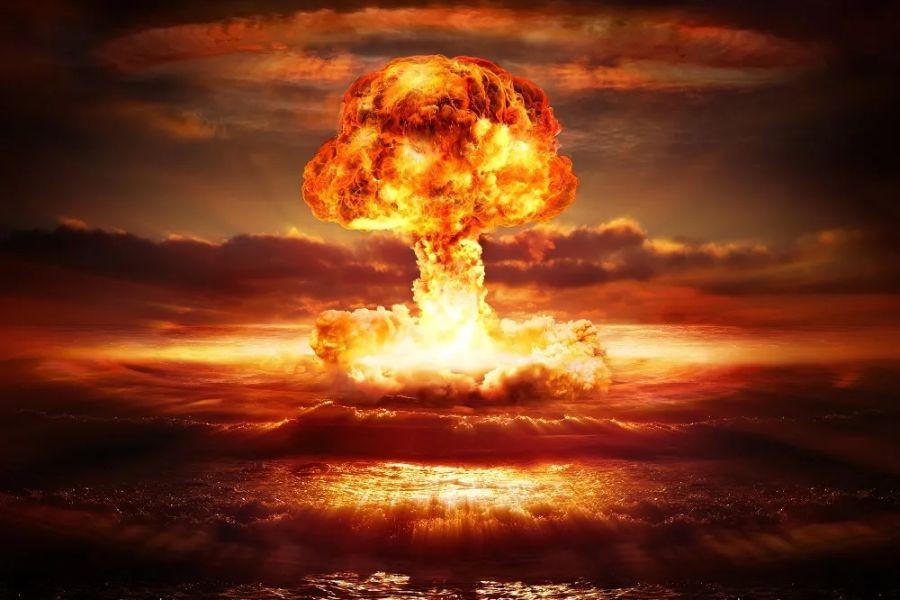As global geopolitical tensions rise, the question of whether Australia should develop nuclear weapons for self-defense has sparked significant debate. In recent years, Australia's strategic defense landscape has evolved, shaped by regional dynamics and international relations. This topic not only touches on military strategy but also intersects with economic, ethical, and political considerations unique to Australia. In this article, we explore the multifaceted implications of Australia potentially becoming a nuclear-armed state, drawing on expert insights, economic data, and historical context.
Pros and Cons of Developing Nuclear Weapons
Pros:
- Deterrence Power: Possessing nuclear weapons could enhance Australia's deterrence capabilities, discouraging potential aggressors in the Asia-Pacific region.
- Strategic Independence: Nuclear arms might provide Australia with greater autonomy in international relations, reducing reliance on alliances.
- Technological Advancements: The development of a nuclear arsenal could spur advancements in technology and research, with potential spillover benefits for other industries.
Cons:
- Economic Burden: The cost of developing, maintaining, and securing nuclear weapons could divert resources from other critical areas like healthcare and education.
- Global Isolation: Pursuing nuclear weapons may lead to international condemnation and potential sanctions, negatively impacting trade relations.
- Regional Arms Race: Australia's nuclear development could trigger an arms race in the region, destabilizing the current security environment.
Comparative Analysis: Global Context
To understand the potential impact on Australia, it's useful to look at countries like India and Pakistan, which have developed nuclear arsenals under similar geopolitical pressures. Both nations have faced international scrutiny but also gained strategic leverage. For Australia, the economic and diplomatic repercussions could be different due to its unique position in the global economy and its alliances, particularly with the United States.
Case Study: India's Nuclear Program
India's decision to develop nuclear weapons was driven by security concerns and regional rivalries. Despite initial sanctions, India has managed to integrate into the global economic system, leveraging its nuclear status to enhance its geopolitical standing. However, the path was fraught with challenges, including significant economic costs and diplomatic hurdles.
Economic Implications for Australia
According to the Australian Bureau of Statistics (ABS), defense spending in Australia accounted for 2% of GDP in 2022. Developing a nuclear arsenal would likely increase this percentage significantly, potentially affecting public services and infrastructure investment. Furthermore, the Reserve Bank of Australia (RBA) might face challenges in managing the economic repercussions, including inflationary pressures and shifts in foreign investment.
Real-World Economic Impact
A hypothetical increase in defense spending could lead to a reallocation of resources, impacting sectors like healthcare and education. For instance, the Treasury AU estimates that every percentage point increase in defense spending could reduce educational funding by approximately 0.5%. This trade-off poses significant policy challenges.
Regulatory and Legal Considerations
The Australian Competition & Consumer Commission (ACCC) and Australian Prudential Regulation Authority (APRA) would need to navigate complex regulatory landscapes. Nuclear development involves stringent international regulations under treaties like the Non-Proliferation Treaty (NPT). Compliance with these regulations is crucial to avoid international sanctions and maintain Australia's global standing.
Myths and Misconceptions
- Myth: Nuclear weapons guarantee complete security.
- Reality: While they provide a strong deterrent, nuclear weapons do not eliminate threats posed by non-state actors or conventional military forces.
- Myth: Developing nuclear weapons is quick and straightforward.
- Reality: The process is complex, requiring significant time, resources, and technological expertise.
- Myth: Australia can develop nuclear weapons without international repercussions.
- Reality: Pursuing nuclear weapons would likely lead to diplomatic isolation and potential economic sanctions.
Future Trends and Predictions
As Australia considers its defense strategy, several trends could shape its decision-making process. According to a recent Deloitte report, advancements in missile defense technology might reduce the perceived need for nuclear deterrence. Additionally, international diplomatic efforts, such as arms control agreements, could influence Australia's strategic choices. By 2030, it's predicted that regional security dynamics will have evolved, potentially reducing the emphasis on nuclear capabilities.
Conclusion
The debate over whether Australia should develop nuclear weapons is complex, involving strategic, economic, and ethical dimensions. While nuclear weapons could enhance deterrence and strategic independence, they also pose significant economic and diplomatic challenges. Australia's decision will likely depend on future regional dynamics, technological advancements, and international diplomatic efforts.
As Australia navigates these challenges, it's crucial for policymakers, industry leaders, and the public to engage in informed discussions. What’s your take? Share your insights below!
People Also Ask
- How does nuclear weapon development impact Australia’s economy?Developing nuclear weapons could strain Australia's economy by increasing defense spending, thus impacting other sectors like healthcare and education.
- What are the biggest misconceptions about nuclear weapons development?One common myth is that nuclear weapons guarantee complete security. However, they do not eliminate threats posed by non-state actors or conventional military forces.
- What are the best strategies for implementing nuclear deterrence?Experts recommend diplomatic engagement, international treaties, and regional alliances to enhance deterrence without escalating tensions.
Related Search Queries
- Australia nuclear weapons policy
- Impact of nuclear weapons on economy
- Geopolitical implications of nuclear weapons
- Nuclear deterrence strategies
- Australia defense spending 2023
- Non-Proliferation Treaty and Australia
- Australia-US alliance and nuclear weapons
- Regional security in Asia-Pacific
- Economic costs of nuclear weapon development
- Future of nuclear weapons in international relations





































josiesodeman20
6 months ago